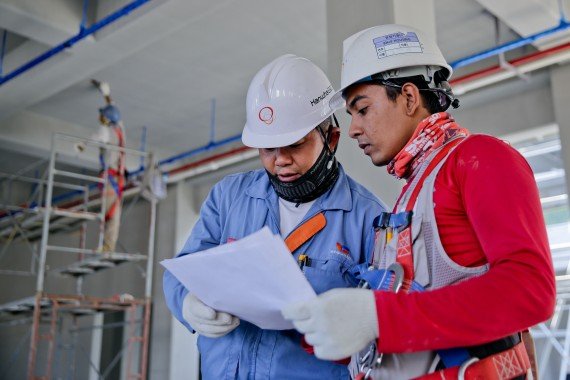Shield Your Business from Fraud: Expert Tips for Importing from China

Shield Your Business from Fraud: Expert Tips for Importing from China
As the world becomes more interconnected, businesses of all sizes increasingly import products and services from China. While this offers many benefits, it also poses certain risks, particularly regarding fraud. Fraudulent activities such as scams, counterfeit products, and misrepresentation can result in significant financial losses for businesses. Therefore, businesses must take proactive measures to protect themselves from fraud in importing from China. This blog post will discuss practical tips and advice on how businesses can protect themselves from fraud.
Top 10 Tips to Avoid Fraud When Importing from China
According to a report by the Organization for Economic Cooperation and Development (OECD), China is among the top countries with the highest incidence of counterfeit goods. It makes crucial for businesses importing products from China to be aware of the risks and take necessary measures to avoid fraud. To help you protect your business from fraud, we have compiled a list of the top ten tips for importing from China safely. These tips are based on years of experience working with businesses of all sizes, and implementing them can help you avoid common pitfalls and protect your business from potential fraud.
1. Research Your Suppliers
The first and foremost step in protecting your business from fraud is thoroughly researching your suppliers. That involves verifying their identity, reputation, and track record. Ensuring that you are dealing with a legitimate supplier with a history of delivering quality products on time is essential. Some steps you can take to research your suppliers include,
- Checking the supplier’s business license and registration documents with relevant authorities
- Checking online reviews and ratings of the supplier
- Asking for references from other businesses who have imported from the same supplier
- Verifying the supplier’s financial standing and creditworthiness
- Conducting background checks on the supplier’s owners and key personnel
2. Establish Clear Contracts and Agreements
Another critical step in protecting your business from fraud is establishing clear contracts and agreements with your suppliers. Contracts should clearly outline the terms and conditions of the transaction, including delivery times, payment terms, and product specifications. It is also essential to include clauses that protect your business from fraud, such as warranties, indemnities, and penalties for breach of contract. Clear contracts and agreements will ensure that both parties understand their obligations and reduce the risk of misunderstandings or disputes.
3. Verify Product Quality and Authenticity
One of the most significant risks of importing from China is receiving counterfeit or substandard products. To protect your business from this risk, verifying the quality and authenticity of the products before making any payment is essential. Some ways to do this include,
- Requesting product samples before placing an order
- Conducting product inspections at the factory before shipment
- Verifying the product’s authenticity with a third-party certification agency
Here are some examples of certificates and documents that businesses must verify before signing an importing agreement,
- Quality Control Certificates – Quality control certificates issued by Chinese authorities like the China Inspection and Quarantine (CIQ) are crucial documents to verify. These certificates verify that the products meet the quality standards set by the importing country. CIQ tests are also intended to identify and prevent the importation of substandard or counterfeit goods that may pose a risk to consumers.
- Product Certifications – Product certifications are documents issued by Chinese authorities or third-party certification bodies that confirm that the products meet certain safety or quality standards. Some examples of product certifications include the China Compulsory Certification (CCC), RoHS testing, and the CE Marking for products sold in the European Union.
- Customs Clearance Documents – Customs clearance documents like the Bill of Lading and the Commercial Invoice are essential to verify. These documents verify the authenticity of the products being shipped and ensure that they comply with the regulations set by the importing country.
- Laboratory Test Reports – Laboratory test reports are documents issued by accredited laboratories that confirm the quality and safety of the products. For instance, if you import food or cosmetics products, you must verify laboratory test reports confirming the absence of harmful substances.
- Supplier Business License – In China, businesses are required to register and obtain a business license from the State Administration for Industry and Commerce (SAIC). The business license is an official document confirming that the supplier is a legitimate entity authorized to conduct business in China.
- Supplier Registration Document – The supplier registration document is issued by the local government authorities. It confirms that the supplier is registered with the government and has the necessary permits to operate their business.
- Test Reports – Some products require additional testing to ensure compliance with specific regulations or industry standards. In these cases, you should verify the test reports issued by accredited laboratories that confirm the quality and safety of the products.
Verifying these certificates and documents involves working with various Chinese government authorities and third-party certification bodies. Third-party business verifying agencies like verifyfull can assist you in verifying Chinese companies’ legal status, documentation and their provided certificates. Businesses can avoid fraudulent traders by aligning with business verifying agencies like verifyfull.

Shield Your Business from Fraud: Expert Tips for Importing from China
4. Use Payment Escrow Services
Using payment escrow services is an effective way to protect your business from fraud when importing from China. With escrow services, a third party holds the payment until the goods are delivered and verified in good condition. It ensures that the supplier only receives payment once the buyer is satisfied with the product. It helps reduce the risk of fraud or scams, as it provides a layer of protection for both parties. Several reputable escrow services, such as Escrow.com, Payoneer Escrow, and Alibaba Trade Assurance, are available in the market. Choosing a reputable and reliable escrow service that fits your business needs and requirements is important.
5. Use Secure Communication Channels
Using secure communication channels is another essential step in protecting your business from fraud when importing from China. Cybercriminals may attempt to intercept and modify emails or other communication channels, leading to fraud or scams. To protect your business, consider using encrypted communication channels, such as secure email services or messaging apps, to ensure your sensitive information remains secure during the import process. You can also implement a Virtual Private Network (VPN) or other security measures to safeguard your communication channels. Taking these proactive steps can minimize the risk of cybercriminals intercepting your communication channels and protect your business from fraudulent activities.
6. Stay Informed About Industry Trends
Staying informed about the latest industry trends is crucial to protecting your business from fraud in importing from China. As new types of scams or fraudulent activities emerge, it is essential to be aware of them and take proactive measures to prevent them. Participating in industry events, subscribing to trade publications, and networking with other businesses can help you stay informed about the latest trends and best practices in importing from China. Working with third-party agencies like verifyfull.com can also assist your business in avoiding evolved scammed tactics, as they used to work with hundreds of multinational clients daily.
7. Conduct Due Diligence on Third-Party Service Providers
Third-party service providers such as freight forwarders, customs brokers, and inspection agencies are critical in your importing processes. However, they can also pose a significant risk to your business if they engage in fraudulent activities. Therefore, conducting due diligence on these service providers is essential to ensure they are reputable and reliable.
To protect your business, you should take some steps to verify the legitimacy of third-party service providers. These steps include checking their licenses and certifications, verifying their references, and conducting background checks on their key personnel. It is also advisable to work with a trusted verification service like VerifyFull to conduct due diligence on your service providers.
By taking these measures, you can minimize the risk of fraud and ensure that your importing processes are secure and reliable. Don’t overlook the importance of due diligence when it comes to third-party service providers, as their fraudulent activities can significantly impact your business. With the right strategies and the support of a trusted verification service, you can confidently mitigate these risks and import them from China.

Shield Your Business from Fraud: Expert Tips for Importing from China
8. Implement Robust Internal Controls
Implementing robust internal controls is crucial for preventing and detecting fraud in your importing processes. These controls involve establishing policies and procedures that govern the importing process, such as verifying supplier identities, conducting product inspections, and reviewing contracts and agreements. Additionally, monitoring the importing process regularly to identify unusual or suspicious activities is important to detect potential fraud.
Businesses can seek the guidance of industry experts and utilize software tools designed to develop and implement internal controls, preventing fraud. For instance, companies can use specialized accounting software to track expenses and payments and conduct regular internal audits to identify potential risk areas. By taking these measures, businesses can strengthen their internal controls and reduce the risk of fraud in their importing processes.
9. Educate Your Employees
Educating your employees about fraud risks in importing from China or any other part of the world and how to prevent it is essential to protecting your business. Employees should know the importance of verifying suppliers, conducting product inspections, and using secure communication channels. They should also be trained to identify and report suspicious activities. Regular training and awareness campaigns can help ensure that your employees remain vigilant and aware of import fraud risks.
10. Conduct Regular Audits and Reviews
Regular audits and reviews of your importing processes are critical to ensuring that your business is protected from fraud when importing from China. These reviews will help you identify potential areas of risk or weakness and take corrective action before any significant financial losses occur.
One way to conduct these audits and reviews is to engage the services of an independent third-party auditing firm that specializes in import/export processes. These firms can thoroughly review your importing processes and identify any potential areas of risk or weakness. They can also provide improvement recommendations, helping you strengthen your importing processes and reduce the risk of fraud.
Businesses can also conduct internal audits and reviews. It involves assigning a team or individual within your organization to review your importing processes regularly. This team or individual should have a comprehensive understanding of your importing processes and should be trained in auditing techniques and procedures.
During the audit or review, the team or individual should review all relevant documentation, including contracts, invoices, and shipping documents. They should also interview key personnel involved in the importing process, including suppliers, freight forwarders, and customs brokers. It will help them identify any potential areas of risk or weakness in your importing processes.
Once the audit or review is complete, the team or individual should prepare a report outlining their findings and recommendations for improvement. This report should be presented to senior management for review and action.

Shield Your Business from Fraud: Expert Tips for Importing from China
Final Words
Importing products from China can be a lucrative opportunity for businesses, but it has its risks. Fraudulent activities such as counterfeit products, fake invoices, and unscrupulous suppliers can cost your business significant financial losses and damage your reputation. Taking proactive steps to protect your business from these risks is essential.
The tips and advice outlined in this blog post are practical and actionable measures that you can implement to safeguard your business when importing from China. By working with a reputable verification service like VerifyFull, you can ensure that your suppliers are legitimate, your products are genuine, and your payments are secure.
Don’t let the fear of fraud deter you from importing products from China. With the right strategies and the support of a trusted verification service, you can take advantage of this lucrative opportunity and confidently grow your business.


